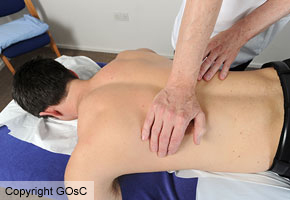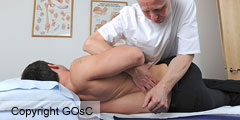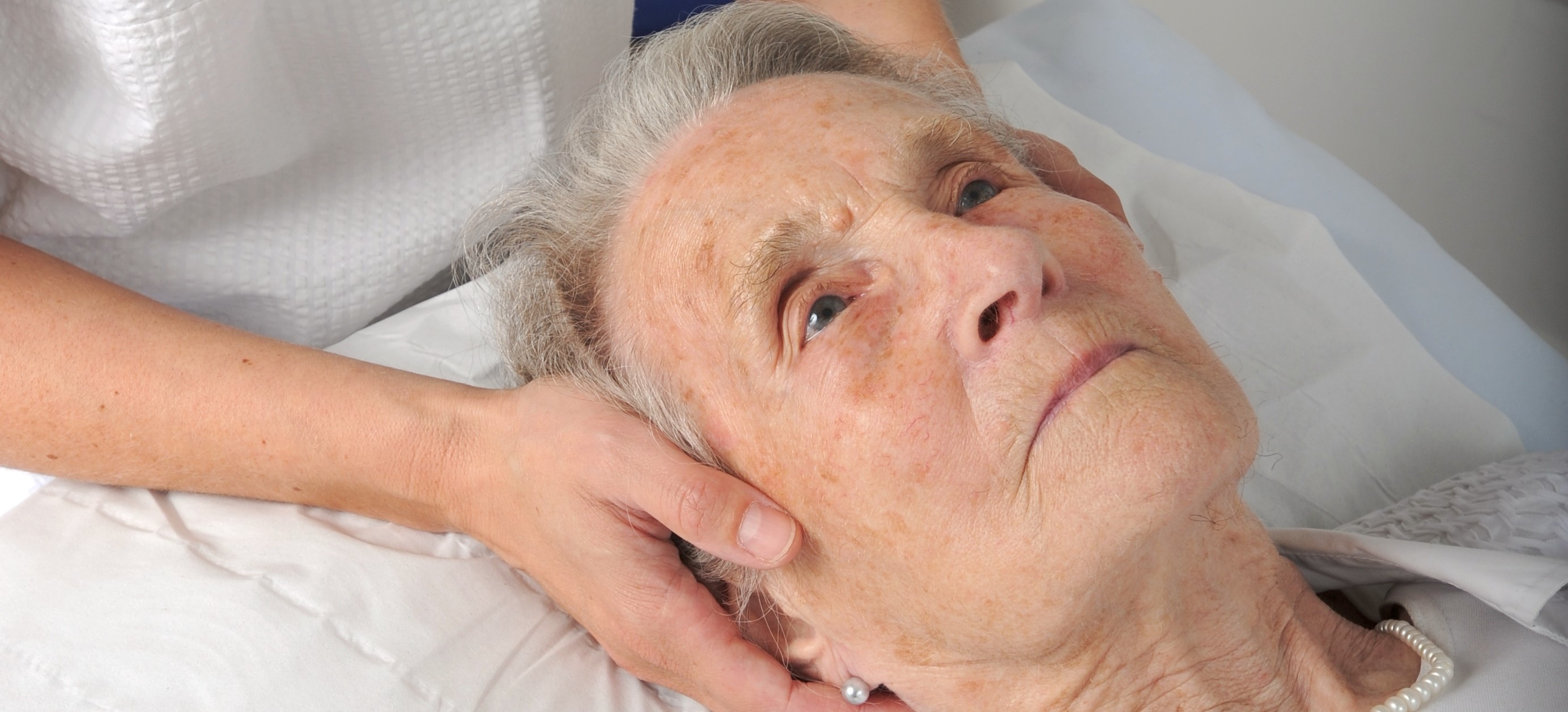Conditions Treated
- Back and Neck Pain
- Arthritic Pain
- Joint Pain and Stiffness
- Sciatic Pain
- Headaches
- Minor Sports Injuries
- Cranial Osteopathy
Back and Neck Pain
Osteopathy is a holistic therapy. Osteopaths don't just examine the area giving symptoms, they look at other parts of the body that can cause or affect the symptoms. Examples of this include dropped metatarsal arches of the feet (flat feet), which can affect the mechanics of the low back, or a scoliosis(curvature of the spine), which can alter the mechanics in another part of the body. The main aim of treatment is to relieve the current symptoms but also to try to help prevent symptoms in the future by addressing the causes, where possible, e.g. by suggesting arch supports for the feet or exercises to improve spinal mobility and function.
Osteopaths treat both acute back pain and chronic back pain.
Leg pain may be the result of a low back problem, even in the absence of pain in the back. The neck can be the cause of head or arm symptoms, or can even affect the low back. The body works as a unit. Poor mechanical function in one area of the spine can lead to increased mechanical strain in other areas.
Arthritic Pain
Pain in degenerative joints, i.e. those affected by osteoarthritis, in any part of the body can often be helped by osteopathy. It can also be eased by postural advice e.g. for work stations, sleeping or driving posture or for leisure activities such as gardening. This can help to minimise stresses and strains on the painful joints and the associated muscles and ligaments.
Osteopathic treatment can help to reduce joint stiffness, improve joint mobility and can enhance the quality of the patient"s life, even if it is not possible to change the underlying osteoarthritis.
Joint Pain and Stiffness
This includes:
Hip Pain and Stiffness
This may be local, e.g. osteoarthritis of the hip joint, or may be a result of a mechanical dysfunction of the low back.
Knee Pain and Stiffness
This can be due to osteoarthritis of the knee or can be related to the low back e.g. referred pain.
Sacro-iliac Joint Pain
Also included are:
frozen shoulder, shoulder pain, elbow pain, including lateral epicondylitis (tennis elbow), if they are associated with musculo-skeletal conditions of the back or neck
Muscular Pain and Stiffness
Muscle spasm, muscle cramp or muscle tension can be symptoms associated with mechanical joint dysfunction or they can be conditions in their own right. They can be caused by the muscles being strained or overused or they can be associated with poor posture e.g. unsuitable work stations. Osteopathic treatment can help to ease muscular tension and you may be given advice on how to help prevent the symptoms from returning. You may be given exercises or postural advice. Stress may also lead to muscular tension or spasm and osteopathy can sometimes help if you have difficulty relaxing.
Osteopathy can also help to relieve the symptoms of fibromyalgia.
Sciatic Pain
The sciatic nerve is the largest nerve in the body. There is a sciatic nerve in each leg, running from the low back to the foot, and sciatica is pain along the distribution of the nerve. Sciatica is a symptom with a number of different causes, some within the spine and some not. Sciatica may also sometimes be accompanied by pins and needles or numbness. This can be a sign of nerve root irritation or nerve root compression. Osteopathic treatment can help to ease the symptoms of sciatica if they are the result of mechanical low back dysfunction.
If sciatica is severe, persistent and not responsive to osteopathic treatment, we may recommend that you see your GP for further investigations.
Headaches
Headaches have many causes. They can be caused by mechanical neck joint dysfunction. Your osteopath will assess the joints in the neck, especially in the upper neck, to see if there are any problems detectable.
Your posture at your work station can be an important factor in chronic headaches associated with the neck and you may advised how to alter this in order to reduce your symptoms.
If we suspect that your head pain may have a non-mechanical cause, we will recommend that you contact your GP.
Minor Sports Injuries
Osteopaths treat patients who take part in every type of sport. They assess the whole body, not just the site of symptoms, and look at how dysfunctions in other parts of the body can affect the injury site. Mechanical problems in other parts of the musculo-skeletal system can affect the symptom area.
Sports injuries may not recover fully if associated tight muscles and joint restrictions are not treated as well. Repetitive strain injuries (RSI) are common in people taking part in sports. This is particularly common in racket sports.
Cranial Osteopathy
Cranial osteopathy is a gentle treatment method that tunes into a subtle, rhythmic motion which occurs throughout the body. This motion has various names including the Cranial Rhythm or Involuntary Motion. Trauma can alter the functioning of the cranial rhythm and this can cause a reduced ability to compensate for life"s mechanical stresses and strains.
Unfortunately we are not currently treating babies or young children.
What don't we treat?
We don't treat inflammatory conditions such as Rheumatoid Arthritis or Polymyalgia Rheumatica.
We don't treat the early acute stage of adhesive capsulitis (frozen shoulder) although osteopathic treatment can help to improve the movement once the initial inflammatory stage is over.
We don't treat ankylosing spondylitis. However, if the condition is no longer active within the spine, there is no contra-indication to gentle osteopathic treatment to the soft tissues.
We do not treat neurological conditions such as MS and Parkinsons Disease, as osteopathy has no effect on the course of these conditions. However we can still treat musculo-skeletal problems in these patients, if they are unrelated to their underlying condition.
We don't treat a patient if we suspect a fracture, malignancy or infective joint disease. If we have any concerns we will always refer back to the GP.
To book an appointment, please ring 0151 648 6870. We are contactable by email, info@wirral-osteopaths.com, but please do include a phone number if you wish to make an appointment


Contact Us
We welcome e mail enquiries but we regret that we are not able to make appointments via the internet, only over the phone, so please include your phone number in any e mails.
Please note that the old Rodney Street number, starting 0151 709, will be discontinued, so we are asking our patients not to use it
How to Find Us
Thingwall Osteopathy, 1A Penrhyn Avenue, Thingwall, Wirral, Merseyside CH61
By Bus: The 472 Liverpool to Heswall bus stops nearby on Pensby Road




